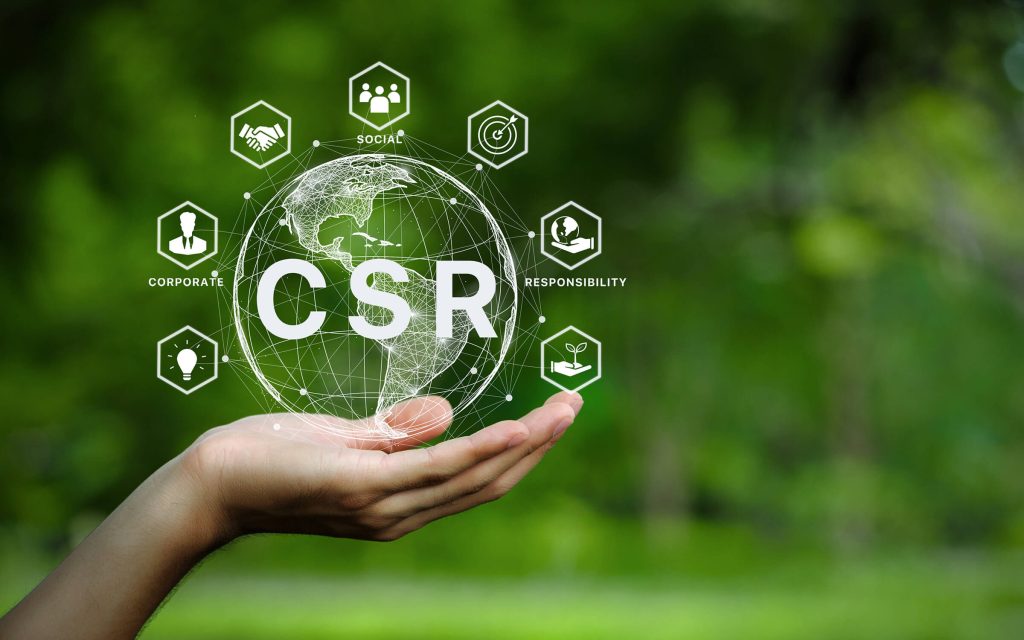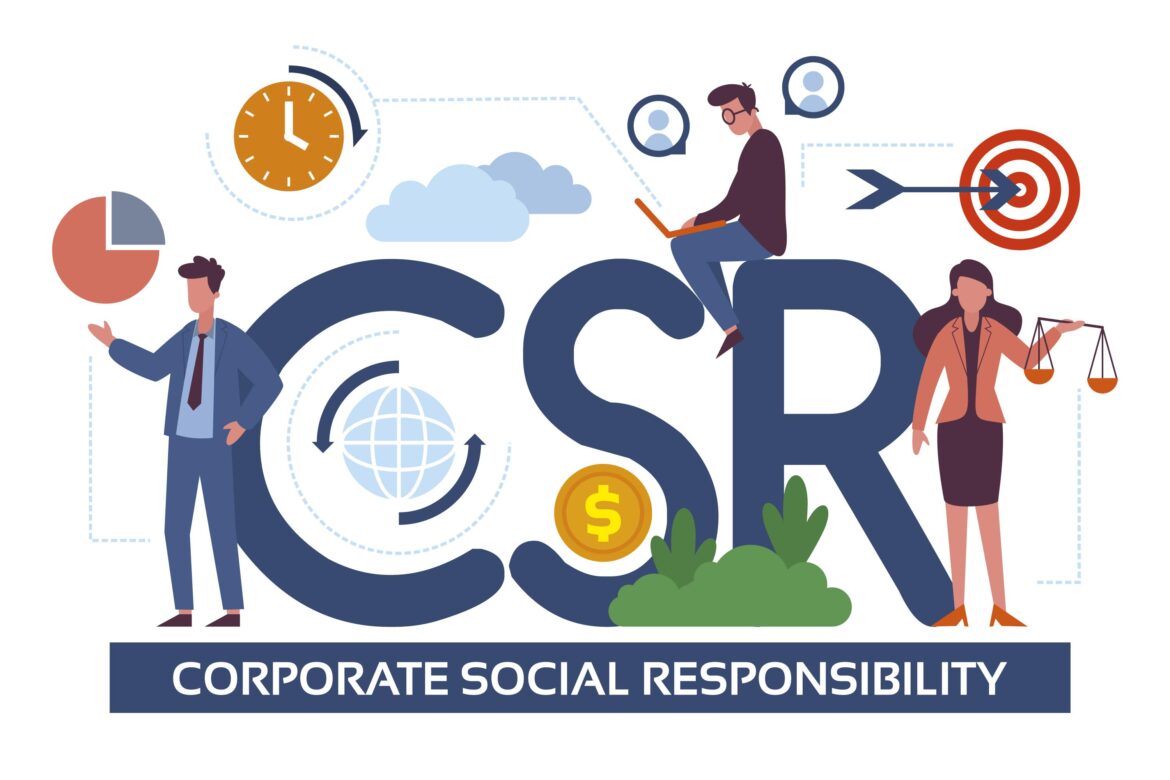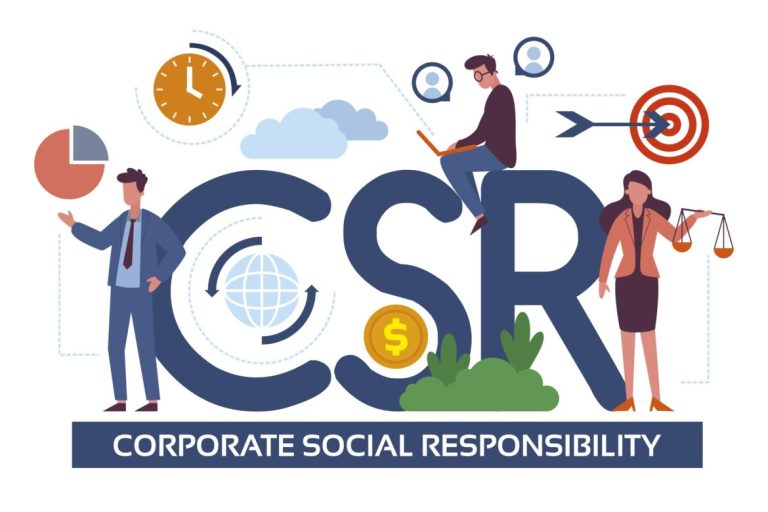The business landscape is rapidly changing, and one of the most profound shifts has been the integration of corporate social responsibility (CSR) and sustainability in business. The marriage of these two approaches has created a new breed of business – one that is not only profitable but also responsible, ethical, and sustainable.
Understanding CSR and Its Role in Sustainable Business
Minting money is a fundamental objective of each business, however, the way this must be accomplished has transformed. The prerequisites for business achievement have expanded to incorporate components of Corporate Social Responsibility. Companies are no longer judged merely by their financial bottom lines but also by their ethical comportment, environmental impact, and their ability to drive social change.
The Significance of Corporate Social Responsibility
CSR involves the creation of shared value, guaranteeing that business activities promote social, economic, and environmental welfare. Consumers are increasingly conscious about the impact of their purchasing decisions and are choosing businesses that prioritize CSR. Therefore, businesses that demonstrate a substantial commitment to CSR often experience enhanced brand reputation, customer loyalty, and financial performance.
The Direct Impact of CSR on Business Sustainability
CSR is an essential component of business sustainability. By prioritizing CSR, businesses can become more resilient in the face of evolving socio-economic and geopolitical challenges. They can instigate a virtuous cycle, where their socially responsible endeavors contribute to long-term business success, which in turn enables the continuation and expansion of these beneficial activities.
Navigating through CSR Best Practices for Ethical Business
To engage in ethical business that is sustainable and drives positive societal impact, companies should adhere to best practices in CSR. Consistent CSR reporting, the development and implementation of impactful social strategies, and a shift towards green business practices are among the most significant of these best practices.
Effective CSR Reporting and Social Impact Strategies
CSR reporting allows companies to effectively communicate their achievements in social, environmental, and ethical issues. Reporting not only increases transparency, but it also holds businesses accountable, encouraging them to continually improve their practices. Meanwhile, robust social impact strategies enable companies to create measurable, positive impacts on society while boosting overall business performance.
A Look into Eco-Friendly Companies and Green Business Practices
As consumers become more conscious about the environment, businesses are increasingly moving towards eco-friendly operations and green business practices. This shift not only mitigates environmental harm, but it also opens up new market opportunities and enhances brand reputation.
Aspect of Harnessing Sustainable Development Goals and Environmental Stewardship
Sustainable development goals (SDGs) provide a roadmap for businesses to drive critical changes in their marketplaces, industry clusters, and ecosystems, while environmental stewardship is about business taking responsibility for the resources it uses and the environmental impact it has.
Advancing Climate Action through Sustainable Business Models
Climate action has become a crucial point of inquiry for all stakeholders involved in businesses, from consumers to investors to regulatory institutions. A revised business model that centers on sustainability serves as a potent tool to combat climate change.
Implementing a Sustainable Supply Chain
A sustainable supply chain is another key aspect of integrating CSR and business sustainability. Supply chains often have significant environmental footprints and potential social impacts. Consequently, implementing sustainable supply chains can significantly amplify a business’s positive impact on both society and the environment.
The Intersection of CSR and Community Engagement in Business
True CSR extends beyond a business’s operations to its sphere of influence, including the local community. Successful community engagement initiatives are those that understand and meet real community needs, are consistent with the business’s objectives, and complement its strengths.
Practical Approaches towards Responsible Business
There are numerous ways companies can design and execute responsible business practices. This may include developing environmentally-friendly products, adopting sustainable business models, establishing standards for ethical treatment of employees, and contributing to community welfare.
Social Responsibility Programs and Their Role in Community Engagement
Social responsibility programs play a vital role in engaging the community. By weaving a sense of social concern into their business model, companies can effectively address societal issues while fostering stronger relationships with their customers and stakeholder communities.
The Circular Economy, Ethical Sourcing, and Fair Trade
In a bid to further promote sustainable business practices, the concept of a circular economy, ethical sourcing, and fair trade show immense potential. Ethical sourcing and fair trade ensure that the products and services a company offers do not exploit workers or degrade the environment, while the circular economy emphasizes resource optimization and waste reduction.
Linking Ethical Investing and Socially Responsible Investing
Both ethical investing and socially responsible investing are approaches that consider social, environmental, and corporate governance criteria in addition to financial returns. These investment approaches can drive companies to act more responsibly and align their strategies and operations with sustainability.
The Potential of Green Innovation and Green Marketing
Green innovation refers to the creation of new, environmentally-friendly products, technologies, and business models. Meanwhile, green marketing focuses on promoting those green innovations to consumers. Together, they can generate profitable growth while simultaneously addressing environmental issues.

Understanding the Importance of B Corp Certification and Responsible Investing
B Corp Certification is a rigorous assessment of a company’s social and environmental performance, transparency, and legal accountability. Simultaneously, responsible investing involves choosing investments that not only offer financial returns but also create positive societal and/or environmental impacts.
The Power of Philanthropy in Business and Corporate Citizenship
Philanthropy involves giving time, money, goods, or expertise to support charitable causes. When businesses engage in philanthropic activities, they demonstrate business ethics and corporate citizenship. Such acts can enhance their reputation, strengthen their relationship with the community, and ultimately contribute to the broader social good.
Sustaining Responsible Business with B Corp Certification and Sustainability Metrics
To sustain a responsible business, companies need to measure their performance against sustainability metrics. B Corp Certification and sustainability metrics provide comprehensive assessments of a company’s social and environmental impacts and transparency. By using these tools, companies can gain a clearer understanding of their sustainability performance and identify areas for improvement.
Embracing the Future of Social Responsibility Trends and Sustainable Tourism
As companies accompany societal trends and transitions, embracing new dimensions of social responsibility, such as sustainable tourism, is essential. Sustainable tourism combines the enjoyment of travel with the responsibility to protect and respect the environment, local cultures, and destinations’ economic viability.
Enhancing Corporate Citizenship through Sustainable Brands and Environmental Ethics
By employing environmental ethics and focusing on sustainable brands, businesses can significantly enhance their corporate citizenship. Businesses that prioritize sustainability and ethical decision-making can build stronger customer loyalty, attract and retain top talent, and improve their overall performance.
The Role of Sustainable Packaging in the Success of a Green Business
Sustainable packaging is another crucial aspect of maintaining a green business. By minimizing packaging material and using recyclable or compostable materials, companies can reduce their environmental footprint while also attracting environmentally-conscious customers. This approach, when integrated with other aspects of CSR and sustainability, plays a vital role in creating a robust and sustainable green business.











+ There are no comments
Add yours